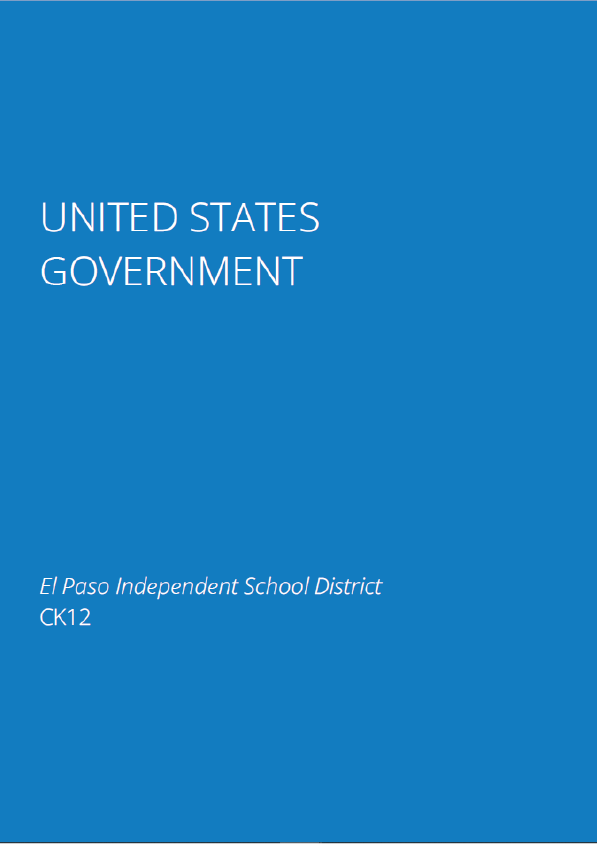El Paso Independent School District in El Paso, Texas created this US Government text for its high school course using OER, CC, and public domain content from a variety of sources curated by educators in the district. The course is aligned to the Texas TEKS and is usually taken in Grade 10.
Do you believe in government “BY THE PEOPLE, FOR THE PEOPLE, AND OF THE PEOPLE?” Few Americans would say no, especially since these words, spoken by Abraham Lincoln in his 1863 Gettysburg Address, are firmly embedded in the American political system. Yet, governments over the centuries have not always accepted this belief in popularly elected rule. The American political system is rooted in the ideal that a just government can exist, and that its citizens can experience a good measure of liberty and equality in their personal lives.
Even in the modern United States, many skeptics criticize government as being controlled by greedy, corrupt people who are only interested in lining their own pockets. So, which view is correct? Is government an instrument of its citizens, an entity that represents and protects a beloved country, or an oppressive, self-serving monster that deserves no respect? The Rule of Law implies that government is based on the body of law that is applied equally and fairly, not on the whims of a ruler.
The conflict between the power of the government and the sovereignty of the people is solidly based in the past. Governments are sometimes idealized and often criticized. Yet, virtually every society in history has had some form of government, either as simple as the established leadership of a band of prehistoric people, or as complex as the government of the United States today. We will begin by examining reasons why governments exist and considering some types of government including democracy, particularly as it is practiced in the modern United States.
Laws of Nature and Nature’s God
Natural rights are usually seen as opposite of the concept of legal rights. Legal rights are those bestowed onto a person by a given legal system (i.e., rights that can be modified, repealed, and restrained by human laws). Natural rights are those that are not dependent on the laws, customs, or beliefs of any particular culture or government, and are therefore universal and inalienable (i.e., rights that cannot be repealed or restrained by human laws).
Natural rights are closely related to the concept of natural law (or laws). During the Enlightenment, the concept of natural laws was used to challenge the divine right of kings, and became an alternative justification for the establishment of a social contract, positive law, and government (and thus, legal rights) in the form of classical republicanism (built around concepts such as civil society, civic virtue, and mixed government). Conversely, the concept of natural rights is used by others to challenge the legitimacy of all such establishments.



